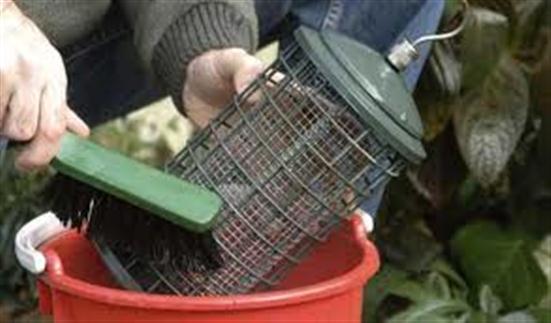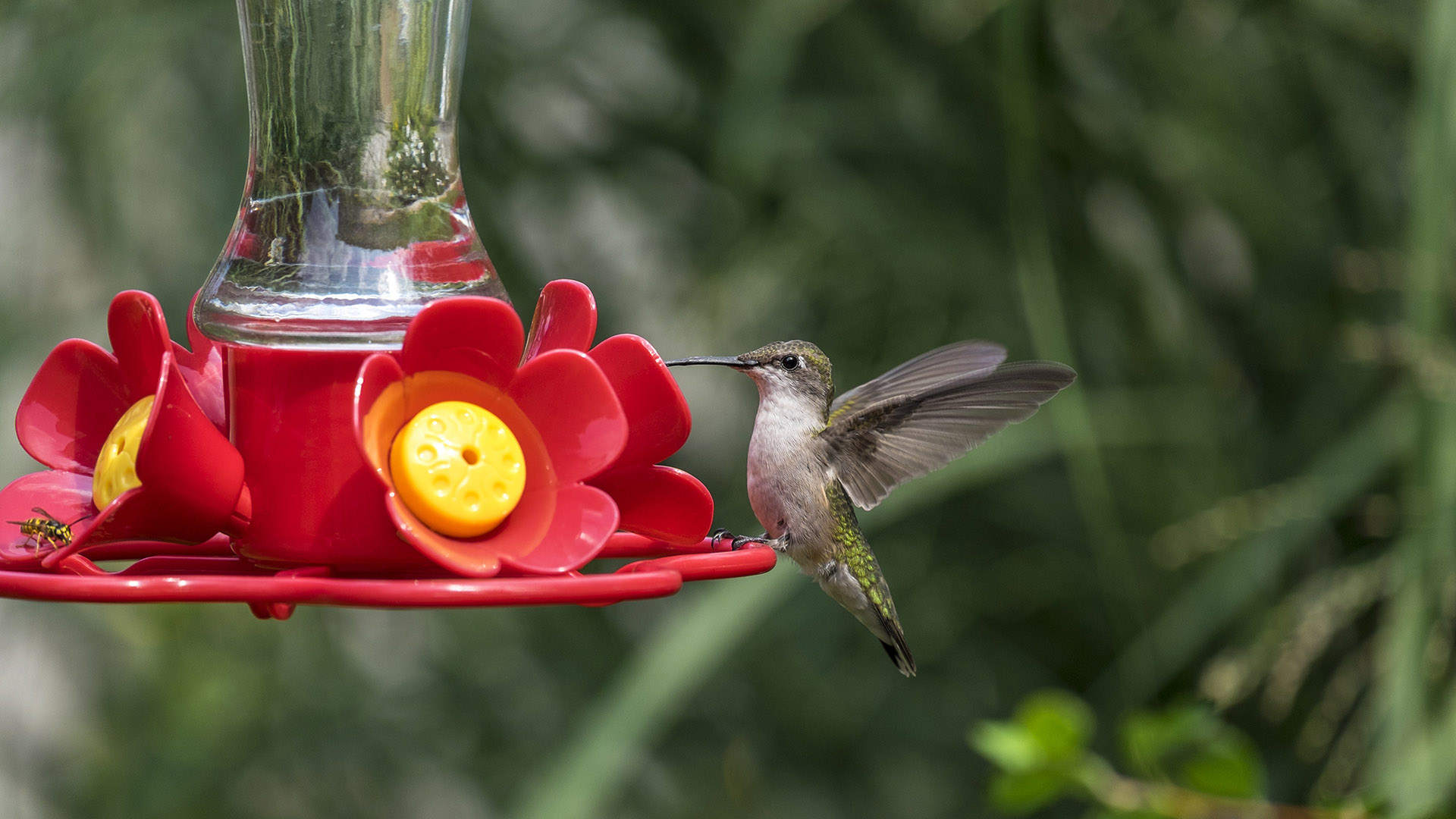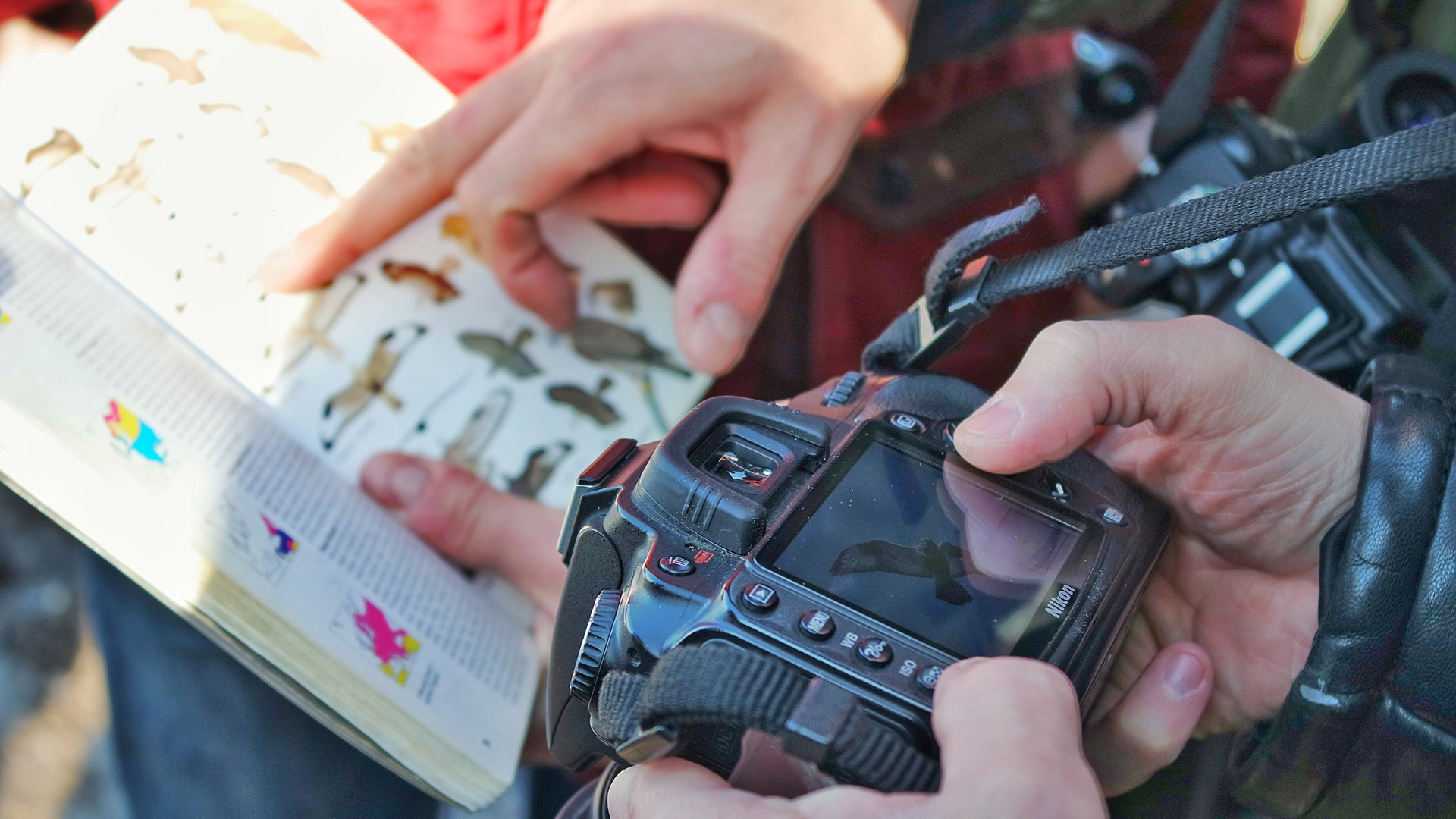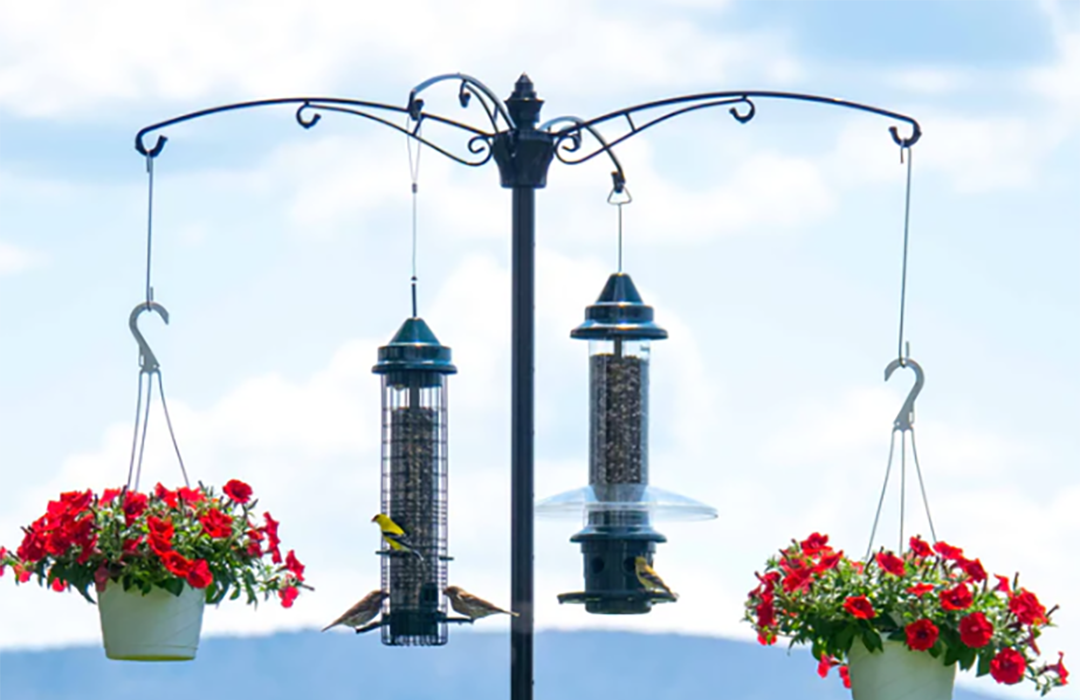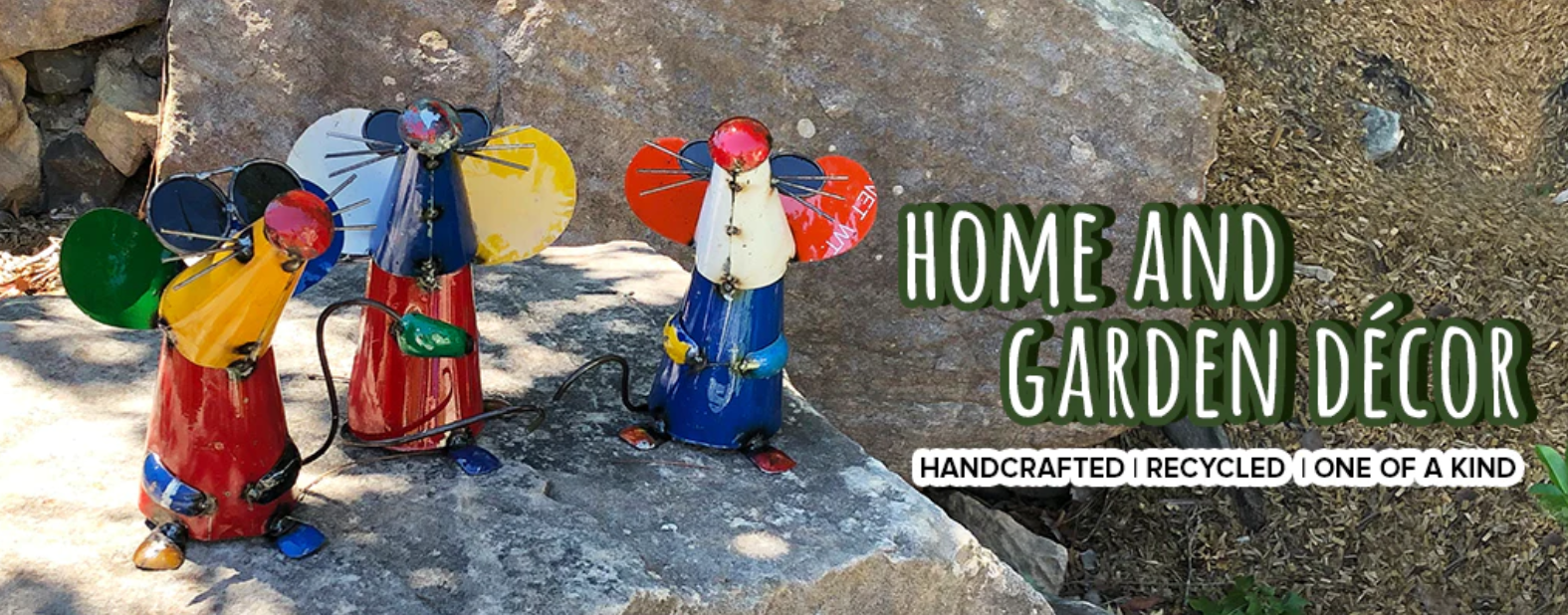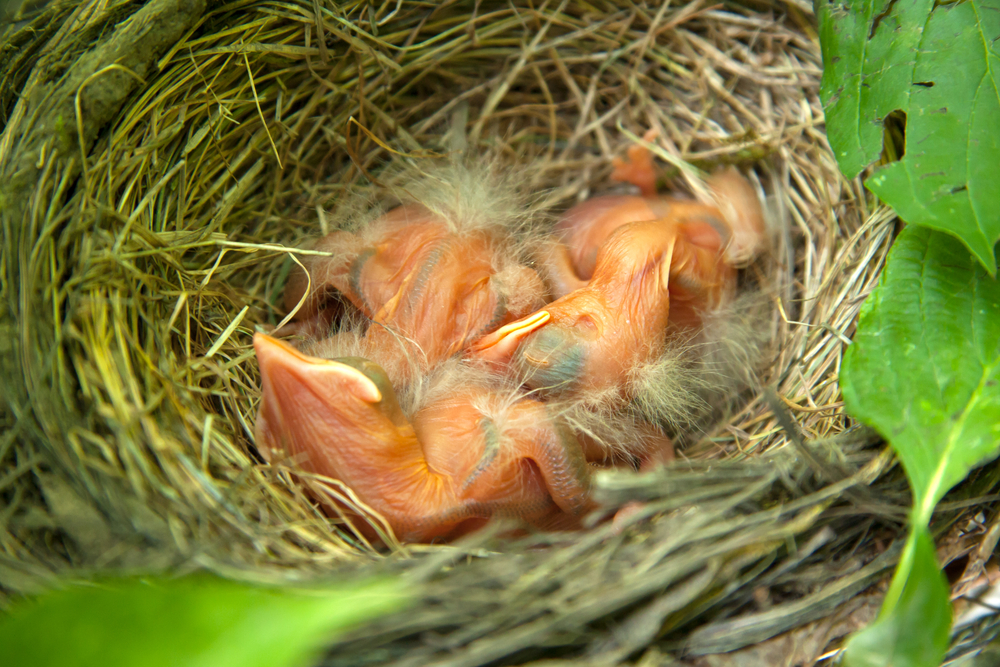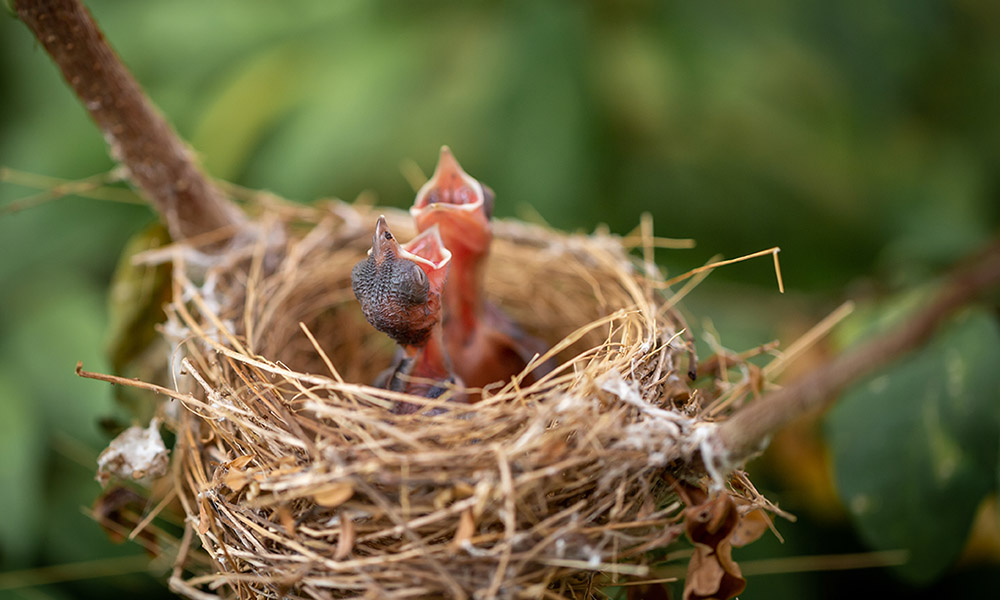We’ve mentioned before how important it is to keep your feeders clean. This said, fall is the perfect time to make sure all the remnants of summer are completely gone from each feeder. It may seem that a thorough cleaning of all of your feeders is a very daunting and time consuming task.
Backyard Birds is here to help!
Bring in up to two feeders at a time and we will have them cleaned and ready for you to pick up the following day! Or, if you’d rather do the job yourself, here are some helpful tips:
- All feeders should be thoroughly cleaned at least once per month, but popular feeders may need to be cleaned much more frequently depending on how many birds use them and how much seed is consumed.
- Sanitation: Feeders can be sanitized with a solution of one part bleach to nine parts hot water. Commercial birdfeeder cleaning solutions are also effective, and a mild solution of unscented dish detergent is acceptable as well. For the best sanitation and disease prevention, each feeder should be cleaned inside and out, including all feeding ports, perches, lids, platforms and reservoirs. The feeder’s hooks, poles and any other part where birds may perch or where feces may collect should also be cleaned.
- Use Proper Equipment: Use rubber gloves to avoid any contamination and use stiff brushes to ensure thorough cleaning. Our store has specialized brushes for different sizes and shapes of feeders, though regular bottle brushes can also be effective. An old toothbrush is a great option for cleaning small parts, feeding ports and tight corners.
- Rinse Thoroughly: After cleaning, the feeder and all cleaned parts should be rinsed for at least 10 seconds in clear, clean water to be sure all chemical residue is removed.
- Dry Completely: Before refilling the feeder, it should be completely dry. Any remaining moisture could lead to mold and mildew that can cause illness and rotten, unhealthy seed.
Regardless of the conditions of your bird feeders, a quick “dry cleaning” is useful every time the feeders are refilled: scrape out any seed clumps, dump out dried feces and shake out any excess debris before refilling the feeder. Wet cleanings or washings in appropriate disinfectants can be less frequent if you make sure your feeders are in good condition with every refill.
Cold, dry weather preserves birdseed longer and keep feeders cleaner, while warm, wet climates facilitate decay and spoiling. During the winter months cleanings every 4-6 weeks may be sufficient. In addition to keeping the birdfeeders clean, it is essential to clean all nearby areas where birds perch and congregate. Eager and hungry birds can spill seed several feet away from feeders, and all feeding areas must be clean to keep bird populations healthy.
Tips to keep nearby areas clean:
- Remove old or damp seed from beneath all feeders
- Remove rotten fruit from trees where birds feed
- Refresh mulch or gravel beneath feeders to cover droppings
- Keep birdbaths and other perches clean
Clean birdfeeders and feeding areas will attract more birds and keep all backyard birds healthier for birders to enjoy.

